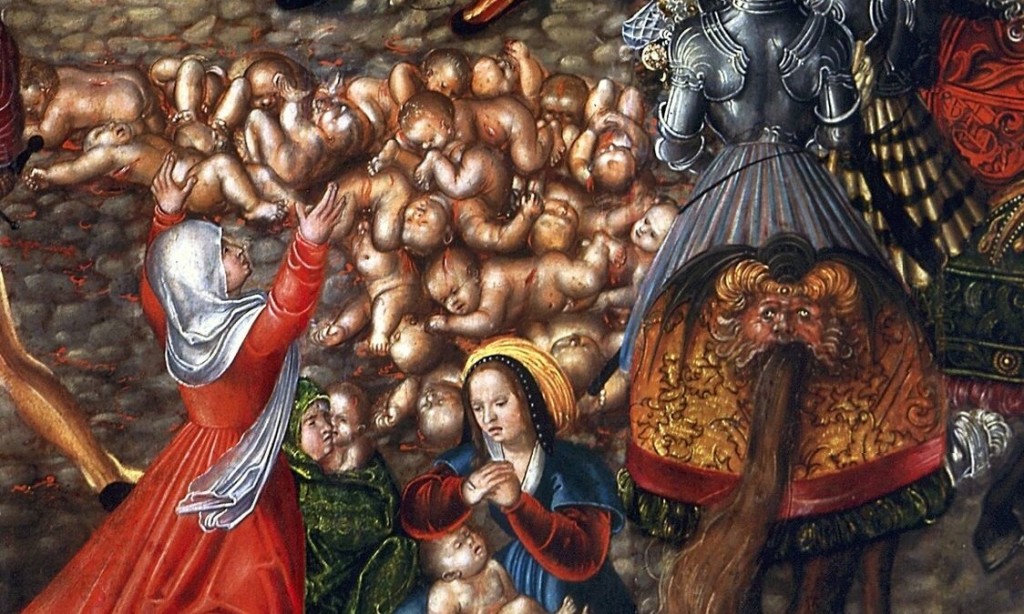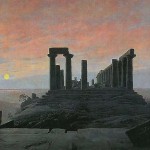
I do not feel competent to comment the 9/11. The events are both too near and to far for me to write about them in the manner they might require. The aftermath makes my gall rise. It is too easy to fall prey to such destructive sentiments.
What happened with the historical politics of 9/11 is much like what Timothy Snyder says about the Holocaust in Black Earth and Bloodlands: There is a danger of pragmatically abusing the memory of the dead, instead of learning the lessons their ghosts want to teach us about the present.
Instead of joining yet another blind polemic I’d like to excerpt Frank Palmer Purcell’s personal reflections from that day:
When the first plane hit I thought there had been some kind of accident on the floor above and stood up in my cubicle; halfway between me and the North windows a little more than a city block away the office manager was standing up, pointing at me with her mouth open. But she was pointing past me to the South windows a little less than a block behind me, and a hole in the side of the World Trade Center the shape of a small plane, which was beginning to smoke. It looked small to everyone; you couldn’t really estimate accurately just how big the tower was, or how far away. I saw everyone going to the windows to see the fire a block away and far above, and I followed them. I looked up into a dark fire, like the fire of hell, maybe—the burning was deep red within the upper floors, before the yellow flames and billows of smoke came out. After I saw the first body fall, seeming as tiny as a speck of confetti but I knew what it was, I went back to my work station weeping. My boss was still at the windows when the second plane hit, poor man—it was not the kind of thing you could turn away from unless you had to. I dug a prayerbook out from the stacks of papers on my desk and tried to recite Orthros, the morning office of the Eastern Church, but found my attention as unreliable as my vision. Some of the verses were all too appropriate…
Frank then cites Psalm 88:
3 For my soul is full of troubles,
And my life draws near to the grave.
4 I am counted with those who go down to the pit;
I am like a man who has no strength,
5 Adrift among the dead,
Like the slain who lie in the grave,
Whom You remember no more,
And who are cut off from Your hand.
6 You have laid me in the lowest pit,
In darkness, in the depths.
7 Your wrath lies heavy upon me,
And You have afflicted me with all Your waves.
His reflections on the fallout from all this I think are on the mark with what Snyder says about history not being past. The past remains alive if it can help us make judgments about the present:
It would have been right and proper to pursue this man bin Laden and his henchmen to the ends of the earth. Instead the United States presented the Afghans with an ultimatum like that of Austria to Serbia which plunged the West into a quarter century of civil war and in so doing doomed our whole civilization. When the Taliban failed to capture and surrender bin Laden we devastated, conquered, and occupied Afghanistan without hitting our main target. Indeed, we gave up on bin Laden entirely and decided to destroy his worst enemy instead. Saddam might have been the symbol of that secular nationalism that al Qaeda fears and despises most, but he happened to be at the top of the hit list, and Iraq was thought to be an easy target.
Between the Gulf Wars I had expressed dismay at fact that American sanctions were mostly hurting the aged, the sick, and the children of Iraq. It was answered that every Arab baby dead was one less enemy we would have to face later on. To me it was a terrible crime against humanity, as the Supreme Pontiff of Christendom, sick as he was, did not tire of pointing out. It was a crime that would have terrible consequences for America and the world.
Elsewhere in the piece the author also accurately notes how Jihad was as much a Western export to the Muslim world as the secularism of Saddam Hussein. The waves of the dead from our response to 9/11 continue to disturb memories, but not frequently enough out own.
History is all too frequently the history of unlearned lessons. It’s disconcerting to think of this and remain hopeful after sending our second almost-innocent off to her first day of kindergarten today.
I’ll would like to close with this Wislawa Szymborska’s poem, “Photograph from September 11,” from the collection Monologue of a Dog:
They jumped from the burning floors—one, two, a few more,higher, lower.The photograph halted them in life,and now keeps themabove the earth toward the earth.Each is still complete,with a particular faceand blood well hidden.There’s enough timefor hair to come loose,for keys and coinsto fall from pockets.They’re still within the air’s reach,within the compass of placesthat have just now opened.I can do only two things for them—describe this flightand not add a last line.











